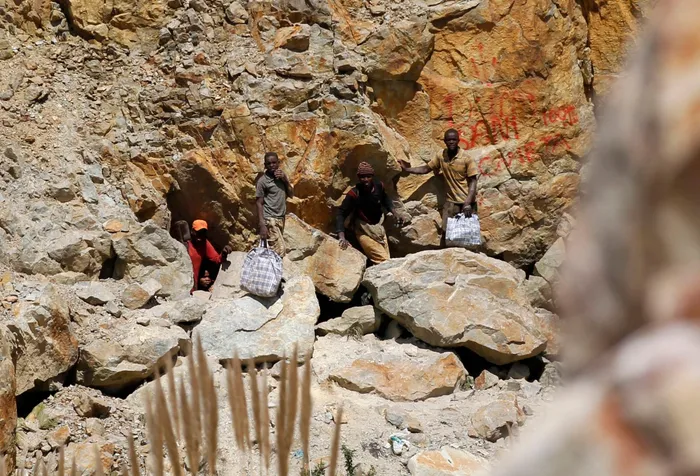
Artisanal mining is a labour-intensive form of mining that uses rudimentary tools and technologies to access mineral ore, usually available on surface or at shallow depths although such mining often occurs at relatively deep levels. In South Africa, most artisanal mining is carried out illegally.
Image: File
The government is poised to reshape the artisanal and small-scale mining (ASM) landscape with the recent approval of the Mineral Resources Development Bill of 2025 for public comment.
This significant move by Cabinet marks a proactive step towards reforming a sector long burdened by regulatory ambiguities.
Minister in the Presidency, Khumbudzo Ntshavheni, said on Thursday that this landmark legislation was set to enhance investor confidence and stimulate economic growth through the reduction of bureaucratic obstacles and the provision of regulatory certainty.
The Bill is part of a wider amendment to the existing Mineral and Petroleum Resources Development Act of 2002, and it proposes a comprehensive approach to address the regulatory gaps that have stunted the mining industry's potential for years.
"The Bill seeks to address key regulatory gaps, streamline licensing processes, ensure equitable distribution of mining benefits, promote local processing and manufacturing industries by ensuring that more raw minerals are transformed into higher-value products within the country," Ntshavheni said.
A pivotal component of the new legislation is the introduction of a dedicated licensing regime for artisanal and small-scale mining operations. This allows for the emergence of a formalised ASM sector, heralding a new era for small miners who often find themselves operating outside the law due to a lack of formal recognition and support.
Artisanal mining, defined as a labour-intensive practice employing rudimentary tools, predominantly takes place illegally in South Africa due to existing mining laws that do not accommodate such operations.
Currently, mining laws in South Africa do not regulate artisanal and small-scale mining as a discrete form of mining. Instead, a mining permit which is less onerous than a mining right can be obtained, but ASM miners still struggle to meet its requirements.
By recognising and regulating these smaller mining enterprises, the government aims not only to boost economic activity but also to enhance safety standards within the sector.
The proposed Bill is also set to tackle illegal mining and organised crime, both of which have surged in South Africa, threatening the integrity of the mining industry and leading to substantial economic losses.
In addition to creating a more conducive environment for legitimate mining operations, the Bill also takes a strong stance against unlawful activities in the sector as illegal mining and organised crime spearheaded by globally connected criminal syndicates has been on the rise in South Africa.
By establishing clear prohibitions and enforcement mechanisms regarding illegal mining, the proposed amendments aim to effectively combat this persistent issue, which has plagued the industry for years and resulted in significant losses to the economy.
The Minerals Council South Africa, a mining industry employers' organisation, on Thursday reiterated its long-held position to supporting the regularisation of ASM where it can be conducted safely and responsibly, although it could not comment on specifics since it has not had sight of the Bill.
“However, any actions and interventions from the DMPR that address the scourge of illegal mining activities and criminal syndicates behind these activities that threaten the viability and long-term sustainability of the formal industry are to be welcomed,” said Allan Seccombe, head of communications at the Minerals Council.
“The Minerals Council has long advocated for stricter and more specific legislation that makes illegal mining a criminal offence with commensurate penalties.”
Visit: www.businessreport.co.za